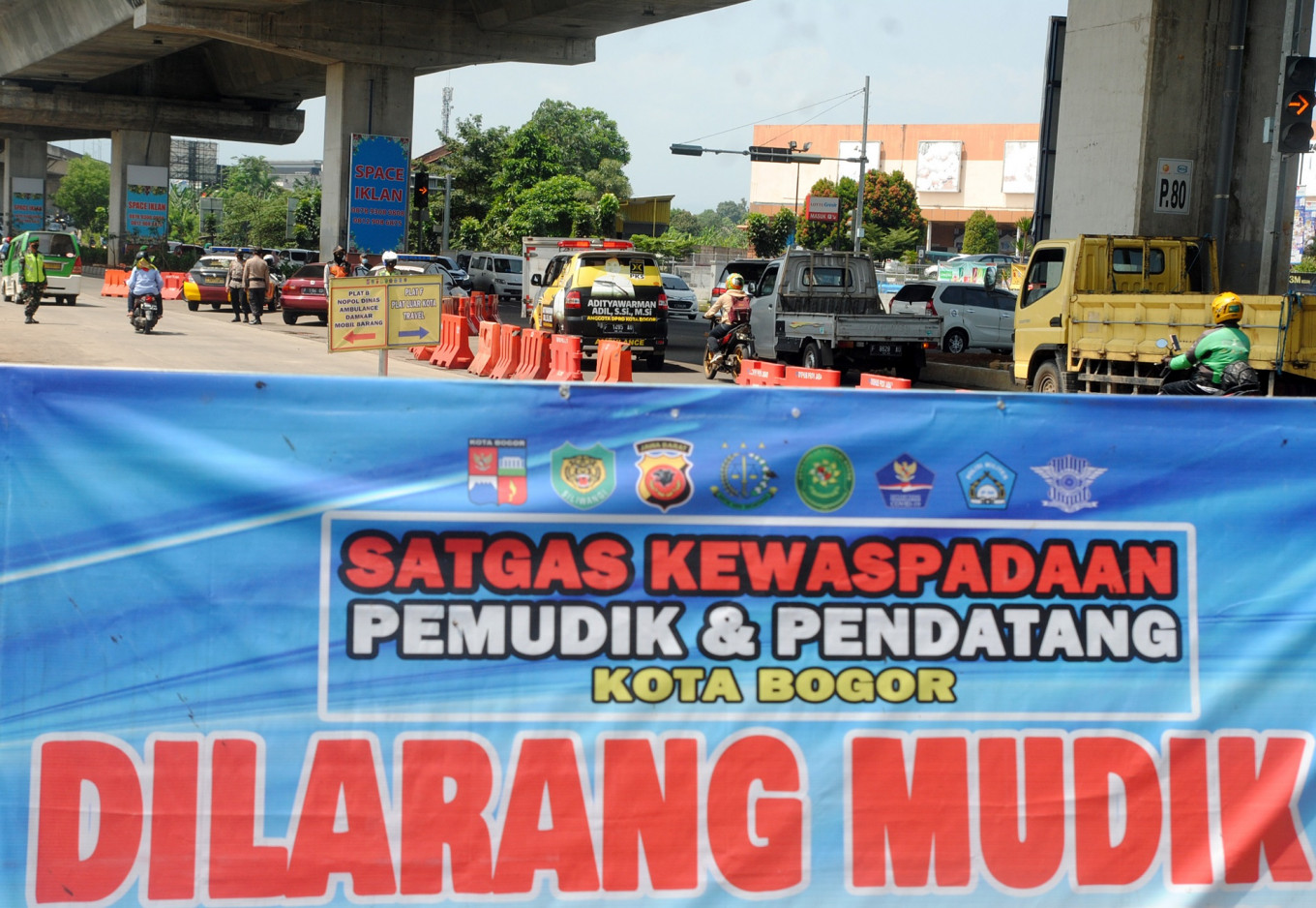Up the game against COVID
With a limited number of personnel and check points, chances are many of the returning mudik (exodus) travelers will slip through the fingers of the joint team.
Change Size

W
ith an estimated 1.5 million people arriving in Greater Jakarta from their hometowns across Java and Sumatra following the Idul Fitri holiday, we should really worry about a spike in COVID-19 cases in the coming weeks, regardless of the massive checks at over 100 entry points.
The national COVID-19 task force said it would increase random testing on intercity travelers who failed to provide proof of a negative test result. The tests will focus on passengers of private vehicles and public transportation passing through toll roads and arterial roads.
With a limited number of personnel and check points, chances are many of the returning mudik (exodus) travelers will slip through the fingers of the joint team involving the police, Indonesian Military, Public Order Agency and the Transportation Ministry. The team is said to be paying extra attention to those arriving from Sumatra, where the number of active cases has risen 27 percent this month.
But we cannot single out the return of mudik travelers as a potential trigger of an impending surge in COVID-19 transmission. Lest we forget, those who defied the mudik ban and managed to escape the border checks might have spread the virus in their home villages and towns in the first place.
The government’s mudik ban came under fire first and foremost because it was only in force for a certain period of time. Many left cities for their hometowns before the ban came into effect, which means the goal of preventing human mobility en masse was not achieved.
Secondly, the mudik ban was not supported by policies that discourage people from crowding, as in the case of the government’s call on people to visit tourist destinations during the Idul Fitri holiday. The fact that people flocked to tourist destinations comes as no surprise as they had no better alternative after they were prohibited from leaving their cities of residence.
During the Idul Fitri holiday on Thursday and Friday, for example, thousands thronged Ancol Beach in North Jakarta, Taman Mini Indonesia Indah (TMII) cultural park in East Jakarta and Ragunan Zoo in South Jakarta, many of whom were seen ignoring physical distancing rules. On Sunday, the police were forced to close access to Pantai Indak Kapuk 2 beach in North Jakarta and turned back motorists as part of efforts to uphold the health protocols.
The contradictory policies once again show the government’s option to play it safe, but in the long run will put public health, hence the country’s economic recovery, in jeopardy. For sure, it will take Indonesia years to finally bounce back unless the restrictions that are already in place are consistently upheld.
Indonesia’s moderate approach is a stark contrast to the bold moves that neighboring countries such as Singapore and Malaysia have chosen, in spite of their relatively better performance in responding to the pandemic than ours. Just recently, Malaysia announced a national lockdown and Singapore reinstated a lockdown following a surge in cases.
With mass vaccination remaining far from the target of 181 million people to achieve herd immunity, we should raise the bar higher when it comes to the health protocols.









